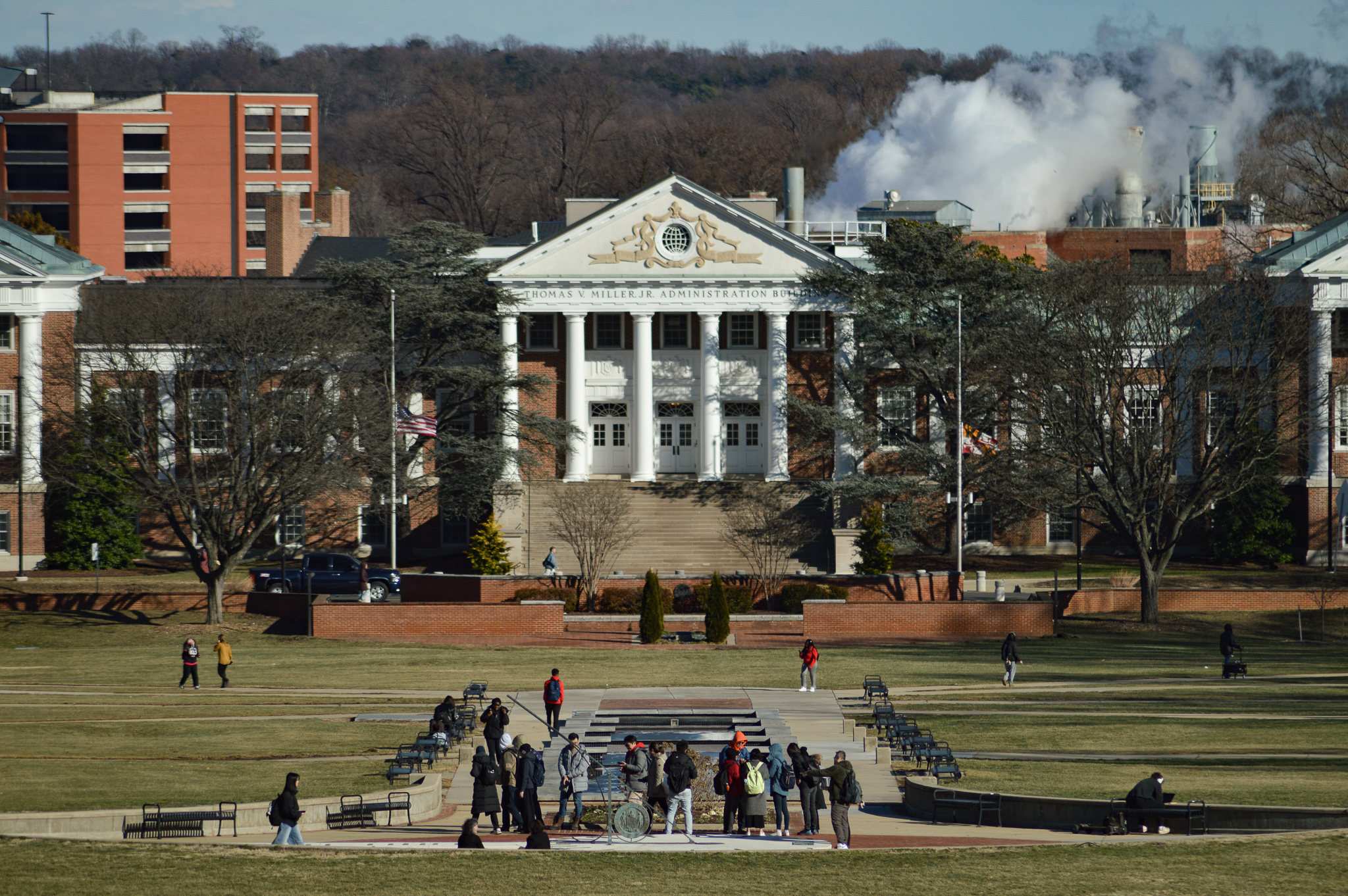The University Senate discussed the University of Maryland’s antisemitism and Islamophobia task force report during its meeting Wednesday.
The report, which was published in November, recommended 10 initiatives to combat hate incidents and increase cultural and religious dialogue on campus, including new training programs and a curriculum requirement. Some senators expressed concerns about the task force’s membership and said the senate did not get to provide enough input on the report.
Task force co-chairs Shibley Telhami — the Anwar Sadat Professor for Peace and Development and government and politics professor at this university — and Maxine Grossman, an associate professor and director of the Joseph and Rebecca Meyerhoff Program and Center for Jewish Studies, presented the report to the senate and expressed their pride in the group’s work during the meeting.
“Everyone rose to the moment,” Telhami said. “Our aim was the collective good of our campus community and the values that underpin it.”
The task force report recommends a separate module on antisemitism and Islamophobia be added to the TerrapinSTRONG online orientation course. The curriculum would focus on understanding and communicating in settings of tension and conflict, the report said.
The report also proposed an “increased engagement with the topics of prejudice” against Muslim and Jewish people in campus diversity programs.
Other suggestions in the report emphasized building upon existing efforts to improve campus climate, such as providing mental health support, honoring free speech policies and strengthening the university’s relationships with local Arab, Israeli, Jewish, Muslim and Palestinian communities.
[UMD task force releases findings to address antisemitism, Islamophobia]
The senate, along with university president Darryll Pines, announced the task force’s creation in a November 2023 campuswide email. An increase in hate bias incidents targeting Jewish and Muslim people both nationally and on campus prompted the task force’s formation, according to the email.
“The report of the task force did not pretend that circumstances at Maryland have been perfect over this last year, or even that they’ve been good,” Grossman said.
The report follows more than a year of student activism and tension on campus after Hamas’ killed about 1,200 people and took about 250 hostages in its Oct. 7, 2023, attack on Israel, according to the Associated Press. Israel’s military forces have killed more than 47,000 Palestinians since it declared war the next day, the Associated Press reported Wednesday.
Israel and Hamas agreed to a ceasefire in Gaza in January, according to the Associated Press.
The task force worked from January through June 2024 to investigate causes of antisemitism and Islamophobia. Members evaluated existing university practices and policies’ effectiveness, aiming to create “a campus community that is welcoming, respectful, and inclusive of diverse religious and cultural backgrounds.”
The task force’s findings included results from a survey on campus climate, University of Maryland Police reports and information from this university’s Bias Incident Support Services office. The survey helped the task force measure Jewish and Muslim students’ comfort levels on campus, Telhami said.
The 26-member task force consisted of students, faculty, staff and members of this university’s Jewish and Muslim communities, according to the report.
[University Senate delays decision on supporting graduate students’ right to unionize]
After Telhami and Grossman summarized the task force’s work at Wednesday’s meeting, the university senate floor opened for questions about the report.
Several senators and campus community members expressed concerns about the task force’s composition.
“It was very unclear to members of the community how the co-leaders were appointed, how the members were appointed,” Gilad Chen, the business school’s organizational behavior chair, said.
The task force was officially named the Joint Presidential and University Senate Task Force on Antisemitism and Islamophobia, but some senators felt they did not get a fair chance to weigh in.
Senator Jeffrey Herf, an antisemitism historian and history professor emeritus, said the senate only discussed the task force mandate briefly before it was formed.
“It sets a bad precedent that a report that’s called a presidential-senate joint report is one that in fact did not have significant input from the senate as a whole,” he said.
Senate leaders submitted nominations for the task force to Pines, according to senate chair-elect Sarah Dammeyer.
Deborah Rosenfelt, a professor emeritus in the women, gender and sexuality studies department, voiced support for the task force’s efforts.
“When I read the report, I was really impressed with its depth and its perspicacity in addressing how an international conflict has directly affected members of campus,” she said.



